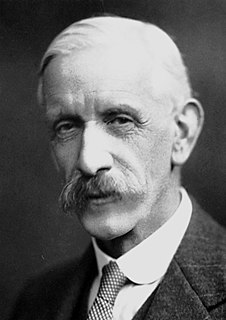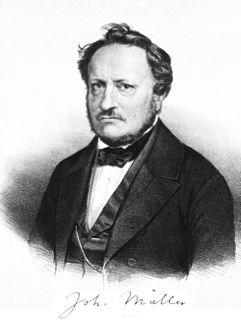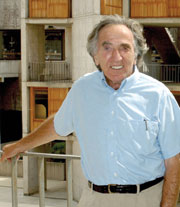A Quote by Frederick Gowland Hopkins
My main thesis will be that in the study of the intermediate processes of metabolism we have to deal not with complex substances which elude ordinary chemical methods, but with the simple substances undergoing comprehensible reactions... I intend also to emphasise the fact that it is not alone with the separation and identification of products from the animal that our present studies deal; but with their reactions in the body; with the dynamic side of biochemical phenomena.
Related Quotes
[G]enes make enzymes, and enzymes control the rates of chemical processes. Genes do not make "novelty seeking" or any other complex and overt behavior. Predisposition via a long chain of complex chemical reactions, mediated through a more complex series of life's circumstances, does not equal identification or even causation.
The steady states of the fluid matrix of the body are commonly preserved by physiological reactions, i.e., by more complicated processes than are involved in simple physico-chemical equilibria. Special designations, therefore, are appropriate:—“homeostasis” to designate stability of the organism; “homeostatic conditions,” to indicate details of the stability; and “homeostatic reactions,” to signify means for maintaining stability.
I would like to start by emphasizing the importance of surfaces. It is at a surface where many of our most interesting and useful phenomena occur. We live for example on the surface of a planet. It is at a surface where the catalysis of chemical reactions occur. It is essentially at a surface of a plant that sunlight is converted to a sugar. In electronics, most if not all active circuit elements involve non-equilibrium phenomena occurring at surfaces. Much of biology is concerned with reactions at a surface.
A single kind of red cell is supposed to have an enormous number of different substances on it, and in the same way there are substances in the serum to react with many different animal cells. In addition, the substances which match each kind of cell are different in each kind of serum. The number of hypothetical different substances postulated makes this conception so uneconomical that the question must be asked whether it is the only one possible. ... We ourselves hold that another, simpler, explanation is possible.
As soon as we touch the complex processes that go on in a living thing, be it plant or animal, we are at once forced to use the methods of this science [chemistry]. No longer will the microscope, the kymograph, the scalpel avail for the complete solution of the problem. For the further analysis of these phenomena which are in flux and flow, the investigator must associate himself with those who have labored in fields where molecules and atoms, rather than multicellular tissues or even unicellular organisms, are the units of study.
There is no agreement on the extent to which metabolism could develop independently of a genetic material. In my opinion, there is no basis in known chemistry for the belief that long sequences of reactions can organize spontaneously -- and every reason to believe that they cannot. The problem of achieving sufficient specificity, whether in aqueous solution or on the surface of a mineral, is so severe that the chance of closing a cycle of reactions as complex as the reverse citric acid cycle, for example, is negligible.
Behaviorism proposes to study human behavior according to the methods developed by animal and infant psychology. It seeks to investigate reflexes and instincts, automatisms and unconscious reactions. But it has told us nothing about the reflexes that have built cathedrals, railroads, and fortresses, the instincts that have produced philosophies, poems, and legal systems, the automatisms that have resulted in the growth and decline of empires, the unconscious reactions that are splitting atoms.
We begin to change the dynamic of our relationships as we are able to share our reactions to others without holding them responsible for causing our feelings, and without blaming ourselves for the reactions that other people have in response to our choices & actions. We are responsible for our own behavior and we are not responsible for other people's reactions; nor are they responsible for ours.
Anguish over the loss of a loved one or feelings of helplessness have complex roots. But in the end, they make you feel bad because they adjust your brain's chemistry. Happiness and its opposite are both electro-chemical reactions; those reactions are temporary and ineffable and could even have hidden benefits.
































